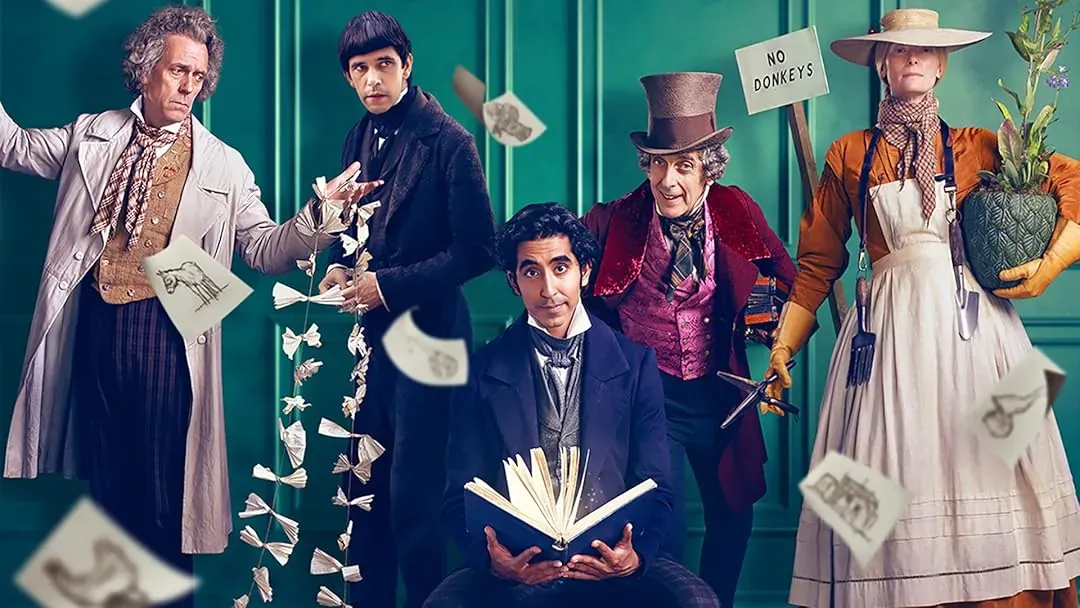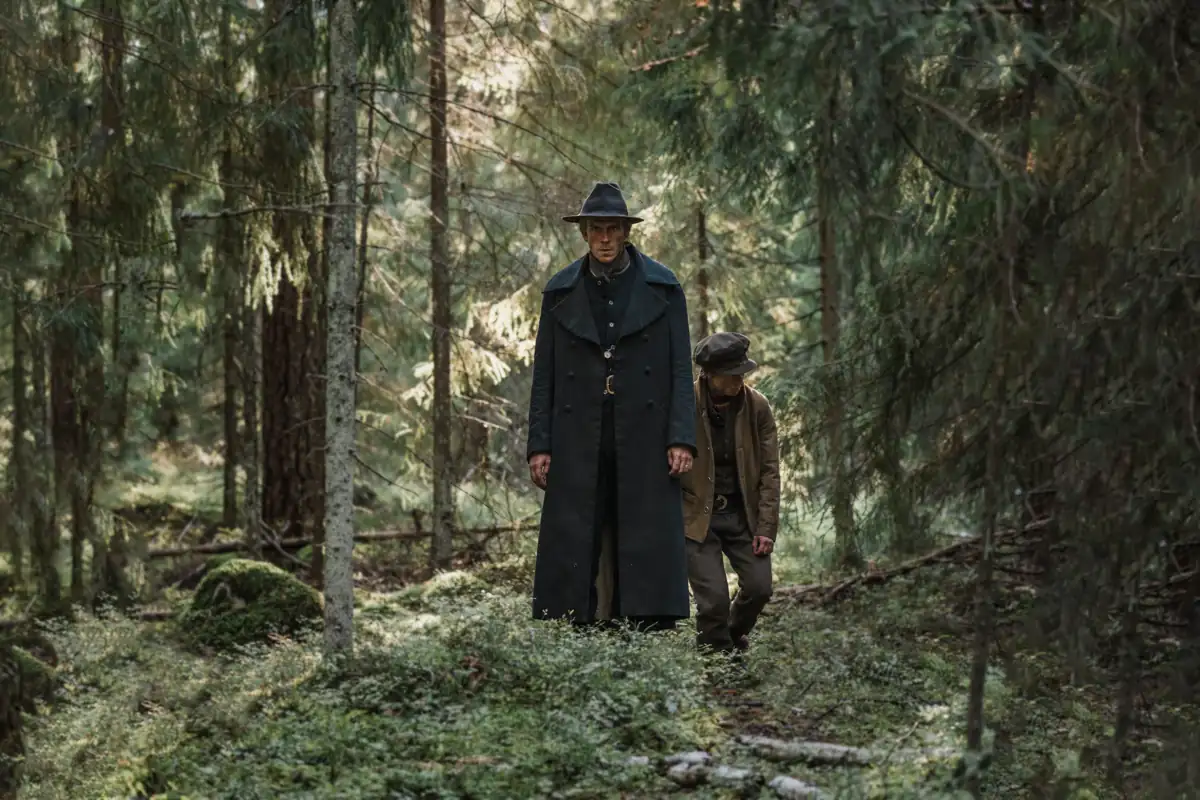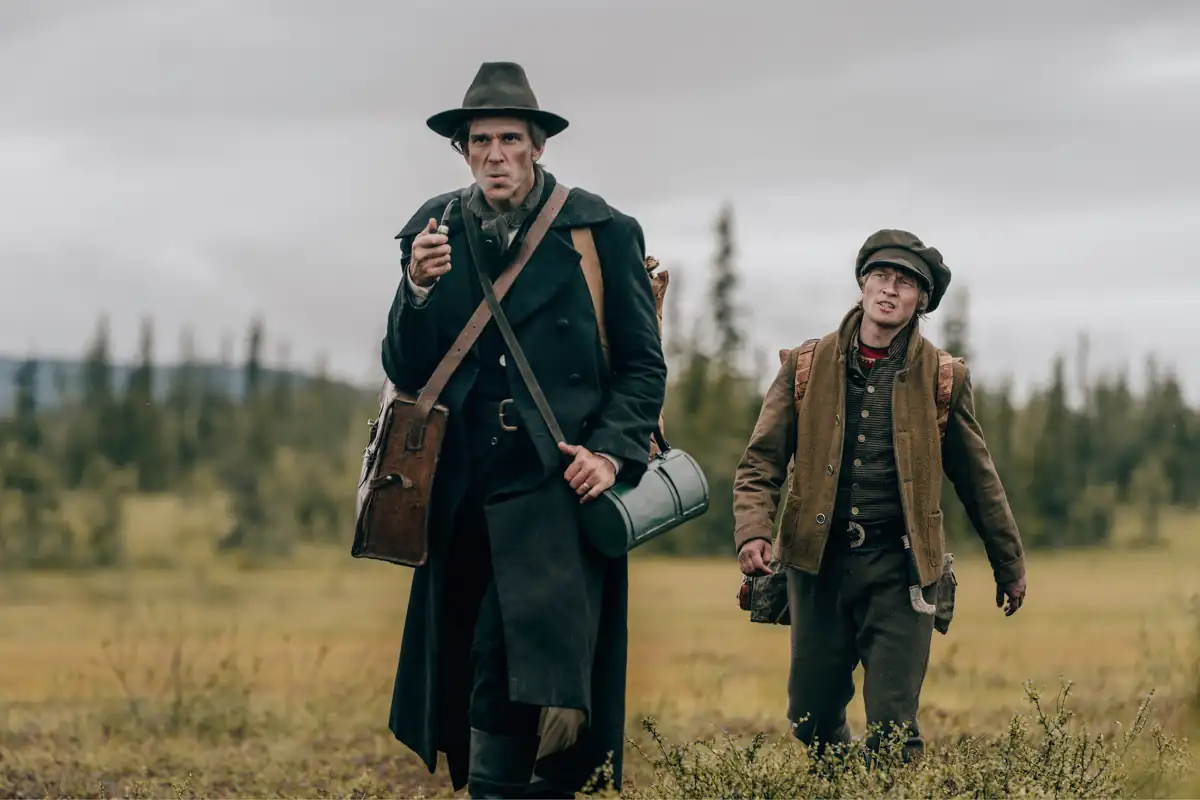You can’t fault the bravado of Armando Iannucci.
After skewering the British political landscape for over a decade with his acerbic series IN THE THICK OF IT, then doing the same for Russian history in DEATH OF STALIN, the Scottish satirist has turned his eye on Charles Dickens.
The result is a profoundly heartwarming adaptation of one of the most famous novels of all time, one that beautifully updates the text for modern audiences while still bowing with deep respect for the timeless qualities that have survived the ages.
Led by a charming performance by Dev Patel, COPPERFIELD is familiar in a comforting way, never stepping off the established path, but telling its story in such an amiable way that never feels overwrought or repetitious. The cast is a buffet of British acting nobility, including the luminous Tilda Swinton, an impish Peter Capaldi, and Hugh Laurie at his most Hugh Lauriest. But it’s Morfydd Clark and Rosalind Eleazar who make an impression as the two important women in Copperfield’s life.
It’s also quite stagey, but purposefully so as Iannucci’s directing embraces the proscenium arch while expanding beyond it. The film opens with Copperfield on stage as he sets the scene for the course of his life. He turns around and walks towards the minimalist sets, which collapse before him to reveal a vast countryside, where Copperfield arrives to witness his birth. It’s a dreamlike fantasy, allowing reality to blend with the subjective experiences we all hold on to in our lives.
Patel is astonishing in the part, deftly balancing slapstick with the dramatic. His version of Copperfield is not 100% in line with the book, and that’s all for the better. Dickens’ work is a time capsule of a world gone by. Iannucci’s adaptation speaks to the modern world even as it dresses in fancifully anachronistic costumes in its portrait of London from a century ago.
It is, at heart, a story about finding yourself and becoming comfortable in your skin. As a theme, that hasn’t aged, and probably never will. There’s classist anxiety all over COPPERFIELD, where only those who reject societal norms are truly ever free. But while it has plenty of good laughs at the expense of snobbery and elitism, Iannucci smartly weaves in sharp observations on why this kind of behavior manifests.
There’s Uriah Heep, played impeccably by an all-time great Ben Whishaw, who snakes and slithers his way into an upper-class family in an attempt to take over their finances. Whishaw's Heep is a wiry devil. Someone who stands too close and asks too many questions. But as he faces a return back to the life he escaped, Whishaw delivers enough sorrow in his poisonous ranting to reveal just how drastic the methods to escape social rejection can become.
The same goes for Capaldi as the always down-and-out Mr. Micawber. His life is destined to circle the drain, yet he treats it like the best waterslide ever built. It’s a meticulous performance that constructs fantasy around itself to ward off the harsh realities, even to the point of dangerous denial. There isn’t an evil bone in his body, but you can tell that it’s desperation, not positivity that fuels him.
Watching Patel navigate the waters of adolescence is great fun, even as a part of your mind keeps pointing out that this is a thirty-something playing a teenager. But in the style of great theater you either go with it or you don’t, the play doesn’t care.
Condensing the wit and breadth of Dickens into a single film is no small task, and it’s one that COPPERFIELD doesn’t seem all that interested in doing. Instead, the film becomes a series of vignettes that swirl around the memory that David is sharing with us. Flashbacks are interrupted by a narrator remembering things wrong; characters break the fourth wall to point out they weren’t part of a scene that is being told. Iannucci understands the past like Dickens does, as an ever-moving and malleable thing that has no structure but the one we make of it.
There’s even a meta-level understanding that all storytellers share; just because you write it doesn’t make things real. David struggles with including a person he professes to love, but it’s the object of his feelings who already sees the truth before he does. “I don’t belong here, write me out.” It’s a heartbreaking scene that is honest and true in its fantasy.
COPPERFIELD presents itself in the opening monologue as both villain and hero of their own story. It’s an eloquent introduction to the complexities of life itself, one that the film lives up to. While this is a fun and breezy story that speeds through its two-hour running time, Iannucci’s direction offers more than enough to consider once it's over.
How much do we invent of ourselves for the sake of others? Are we truly the writers of our own story, or just dutiful servants recording moments in time that we can look back on in hopes that they make sense? If COPPERFIELD is to be believed, it’s both simultaneously.
A fate that is riddled with paradoxes and contradictions, but one worth seeing through and then recording down for others. Just so that one day someone in the same position as we were can look and say “I know how that feels.”













